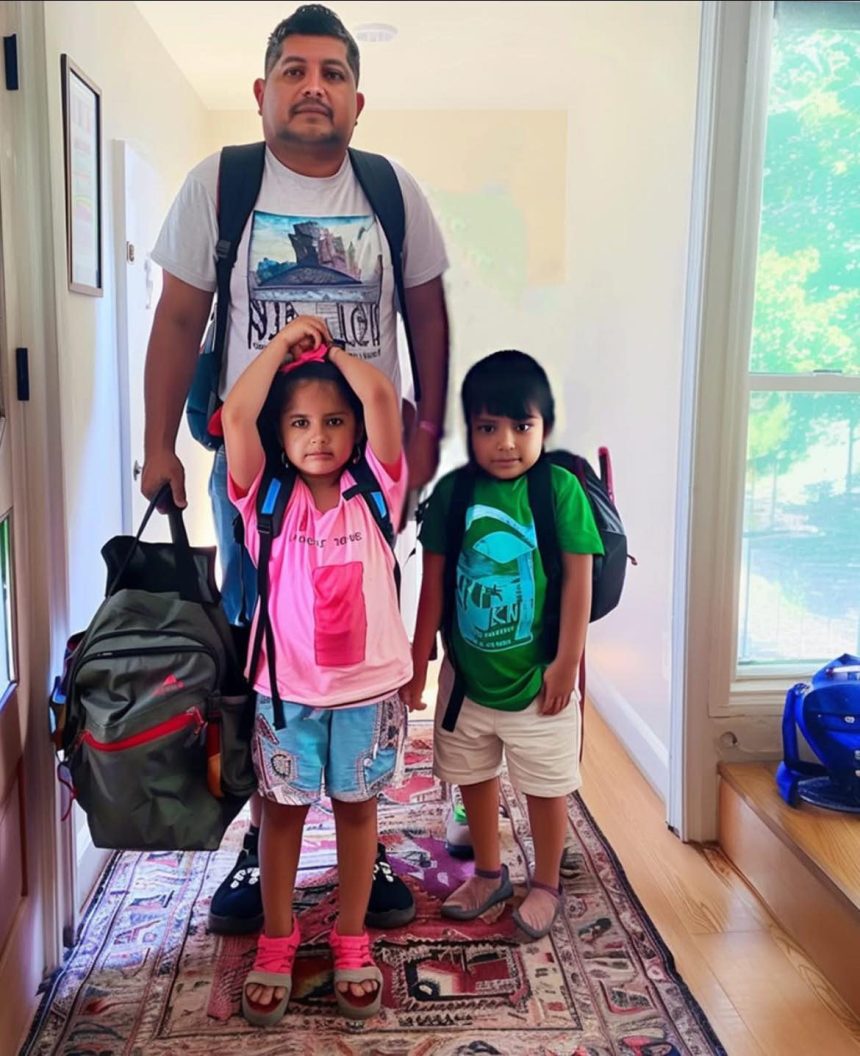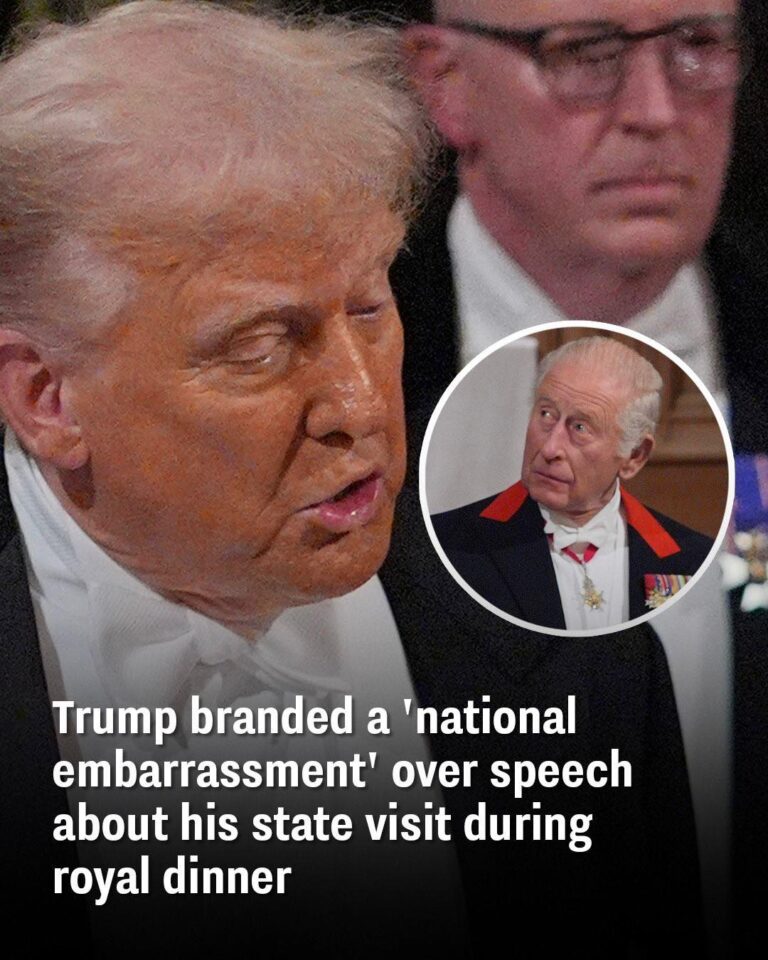My nonverbal son warned me of my husband’s secret by writing “Daddy lies!” on the palm of his hand.

The fact that my husband kept coming home early from work—always when our nanny was still there—set off alarm bells. But it was our nonverbal six-year-old son, Oliver, who saw the truth. His warning, “Dad is lying!” written on the palm of his hand, led me to uncover a secret that would shatter our world.
Oliver had always been more observant than most kids his age. Maybe it was because he couldn’t speak, and his rare condition forced him to find other ways to communicate.
Whatever the reason, he noticed things the rest of us overlooked—like his father acting strangely lately.
I had noticed the changes gradually, like seeing long shadows stretch across our living room floor. First came the phone calls he made outside, pacing the garden with one hand pressed to his ear.
Then came the mysterious appointments that never matched his usual schedule. But what really set off alarm bells was James starting to come home early from work.
It should have been a good thing. More family time, right? But something didn’t fit, especially since he always arrived when Tessa, our nanny, was still there.
When I called to check on how things were going, they talked deeply, their voices dropping to whispers whenever Oliver was near.
“He’s just getting more involved,” my friend Sarah assured me one morning as we had coffee. “Isn’t that what you always wanted?”
I stirred my latte, watching the foam swirl in abstract patterns. “It feels different. Like… he’s hiding something.”
“What makes you say that?”
“He’s distracted. Distant. The other day I found him sitting in Oliver’s room at midnight, just watching him sleep. When I asked what was wrong, he said ‘nothing’ so fast it had to be something.”
I had managed to keep my darkest suspicions at bay until a fateful Tuesday afternoon. I left work early after my last meeting was canceled. The house was silent when I walked in, but I heard low voices coming from the living room.
James and Tessa were sitting on the couch, heads close, speaking quietly. They jumped apart when they saw me, like teenagers caught passing notes in class.
“Rachel!” James’s voice cracked slightly. “You got home early.”
“The meeting was canceled,” I said, the words hanging between us. “Funny, seems like yours was too.”
“Yeah, the client backed out last minute.” He avoided eye contact, and Tessa’s cheeks flushed as she packed up Oliver’s art supplies.
I couldn’t focus on anything after that. My thoughts spiraled as I prepared dinner, each clink of dishes on the counter matching the beat of my heart.
What if all those early returns home weren’t to spend more time with Oliver? What if James and Tessa…
I couldn’t even finish the thought. The idea that he was having an affair with our nanny made me physically sick, but once it took root, I couldn’t shake it.
I watched him across the table, analyzing every gesture, every evasive glance. Was he avoiding my eyes? Was that forced smile hiding guilt?
“How was your afternoon?” I asked, trying to keep my voice casual.
“Oh, you know. The usual.” James pushed his lasagna around his plate. “Just wanted to get home early to see my favorite people.”
The words that once would have warmed my heart now felt like daggers. I noticed Oliver watching us closely, his bright eyes scanning our faces as if reading a story written in our expressions.
After dinner, James went out to the garden—his new comfortable escape, I thought bitterly. I was loading the dishwasher, my mind still swirling with suspicions, when Oliver appeared by my elbow.
He looked worried, more serious than I’d ever seen him. He raised the palm of his hand, where he had written two words in blue pen: “Dad is lying!”
Somehow, seeing those words validated all the fears I had tried to suppress. If Oliver had realized something was wrong, it couldn’t just be my imagination. My sweet, silent boy who saw everything—what exactly had he witnessed?
“What do you mean, sweetheart?” I knelt down to his level. “What kind of lies?”
He pointed toward the hall table where James had left his briefcase—the same briefcase he lately clung to like a lifeline, never losing sight of it.
“Oliver, sweetheart, that’s private…” I started to say, but he was already dragging it toward me, his eyes full of purpose.
My hands trembled as I unzipped it. Inside, instead of the expected lipstick-stained collar or hidden phone, I found a manila folder stuffed with medical documents.
The words jumped out at me like accusations: “Stage 3.” “Requires aggressive treatment.” “Survival rate.”
“Oh, God,” I whispered, the papers shaking in my hands.
“Rachel?” His voice came from behind me, calm and defeated. “I didn’t want you to find out like this.”
I turned around, tears already streaming down my face. “Find out? When exactly were you planning to tell me you’re dying?”
He slumped into a kitchen chair, suddenly looking ten years older. “I thought… I thought if I could handle it myself, do the treatments quietly…”
“Quietly?” I raised my voice.
“Is that what all those early afternoons were about? Chemotherapy? And Tessa, does she know?”
“She found out,” he admitted. “I needed someone to cover for me when I had appointments. I made her promise not to tell you.”
“Why?” The word came out as a sob. “Did you think I couldn’t bear it? That I wouldn’t want to be by your side?”
“I wanted to protect you and Oliver. I didn’t want to see that look in your eyes—the one you’re giving me right now.” He took my hand. “I didn’t want every moment together to be overshadowed by this… this thing I carry inside.”
“You can’t make that decision for us,” I said, but I let him hold my hand anyway. “We’re supposed to face these things together. That’s what marriage means.”
Oliver appeared between us, tears rolling down his cheeks.
He raised the palm of his hand again, but this time it said: “I love Dad.”
Then James broke down, truly broke down, pulling Oliver into his lap. “I love you too, champ. So much. I’m sorry for scaring you with all the secrets.”
I hugged them both, breathing in the familiar scent of James’s lotion and feeling Oliver’s small body tremble against us.
“No more secrets,” I whispered. “Whatever time we have left, we face it together.”
The following weeks were a whirlwind of doctor appointments and tough conversations. I took a leave of absence from work and informed Oliver’s school about what was happening. Tessa stayed on, but now she was part of our support system—not James’s confidante.
She brought us food on treatment days and sometimes sat with me while James slept off the chemotherapy effects.
“I’m so sorry,” she told me one afternoon, eyes full of tears. “Keeping this from you was the hardest thing I’ve ever done. But I was so afraid of hurting you…”
“I understand,” I said, and I really did.
James had always been our protector—the one who hunted monsters under Oliver’s bed and kept spare batteries for all the flashlights in case of storms. Of course, he’d try to protect us from this too.
Oliver started drawing more than ever. He filled pages with pictures of our family—always together, always holding hands.
Sometimes he drew James in a hospital bed, but he always drew him smiling, surrounded by hearts and rainbows. Oliver’s art teacher told us this was his way of processing everything, telling the story he couldn’t express.
One day, I found James sitting in Oliver’s room, surrounded by those drawings. His eyes were red, but he was smiling.
“Remember when we found out about his illness? How terrified we were he’d never be able to express himself?”
I sat down beside him and picked up a particularly colorful drawing. “And now he’s teaching us to communicate better.”
“I was so wrong, Rachel. About everything. I thought being strong meant handling it all alone, but look at him.” James pointed to a drawing where Oliver had depicted our family as superheroes. “He knows that true strength is letting people in, letting them help.”
That night, as we watched Oliver place his latest masterpiece on the fridge, James squeezed my hand.
“I was so afraid of ruining the time we had left,” he whispered. “I didn’t realize that hiding the truth was already doing that.”
I rested my head on his shoulder, watching our silent and wise son. “Sometimes the hardest things to say are the ones that need to be said the most.”
Oliver then turned to us, raising both palms. On one he had written: “Family.” On the other: “Forever.”
And at that moment, despite everything, I believed him.
Here’s another story: When Belinda jokes about skipping her sister-in-law’s strict vegetarian Thanksgiving, her husband Jeremy’s reaction is anything but funny. His sudden anger and divorce ultimatum leave her reeling. As tensions rise, Belinda uncovers secrets pointing to a much deeper betrayal, hidden in plain sight. Click here to keep reading.



